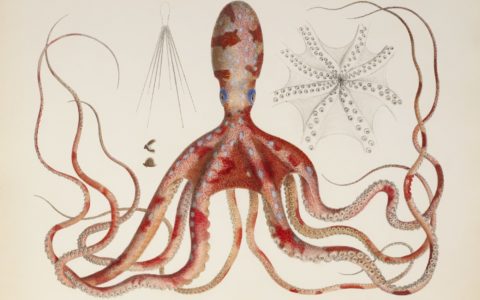Our Governance
President
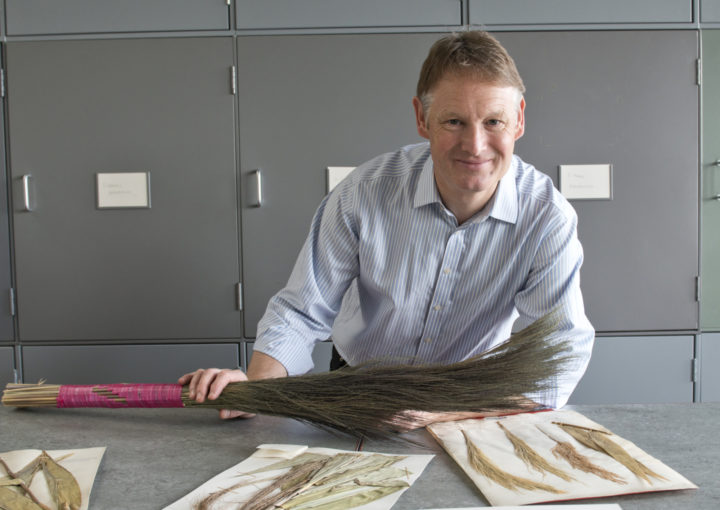
Dr Mark Watson is Head of Major Floras at the Royal Botanic Garden Edinburgh and has researched the floras of Asia, principally China and Nepal, and in connection with the latter has made extensive use of the Linnean Society’s collections: herbarium specimens, printed works and archives. While doing this he has gained a deep insight into the range and value of the collections, as well as adding to its interpretation. Most notably his research has revealed the remarkable contribution of Dr Francis Buchanan-Hamilton on the botany of Nepal.
Vice Presidents
The Society's Vice Presidents are Subhadra Das, Dr Isabel Larridon and Dr Howard P. Nelson. (For bios, see 'Council'.)
Treasurer
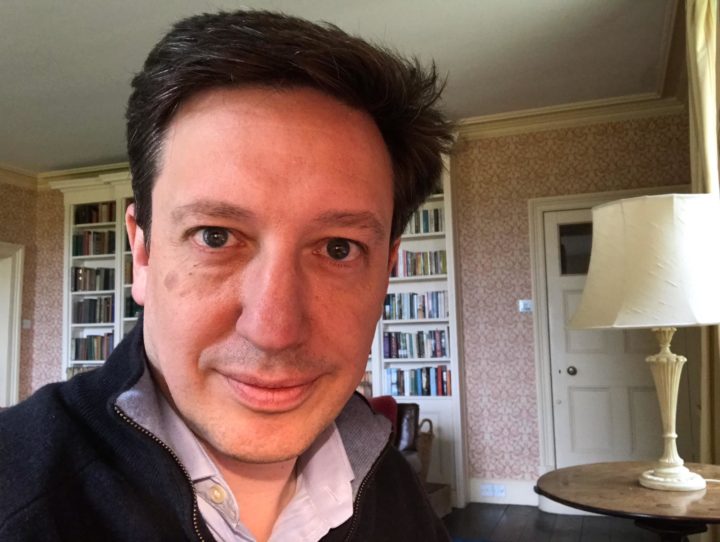
Edward Banks has a degree in Philosophy & Theology from Oxford University and is an investment banker with over 20 years’ experience of advising some of Europe’s largest companies on financial and strategic matters. He is currently a Senior Managing Director at Evercore, having previously worked at J. P. Morgan and Flemings. Prior to becoming a banker, he spent five years as a corporate lawyer at Slaughter and May in London. Edward is also passionate about the environment, owning Hergest Croft Gardens in Herefordshire, which holds the UK National Collections of Maples, Birches and Zelkovas.
Council
Council Members constitute the Trustees of the Society and are elected from the Fellowship. Trustees are both jointly and individually responsible for the overall governance and strategic direction of the Society, its financial health, the probity of its activities and developing its aims, objectives and goals in accordance with the governing documents, legal and regulatory guidelines. They generally meet four times a year. Full details are available in the Trustee Role Description.
George Bull
George Bull has had a lifetime of senior roles in large professional firms, Having grown up in the country, natural history is, figuratively, deeply embedded in his DNA. While his degree in geology from Oxford did not result in a career in the earth sciences, it added a new dimension to his understanding of natural history in general and geomorphology, soil science and ecology in particular. His practical interest in these matters has taken various forms, including at one stage acting as a volunteer recorder for the Botanical Society of the British Isles. George is an active supporter of several wildlife charities and a member of the Leadership Circle of Client Earth.
Subhadra Das
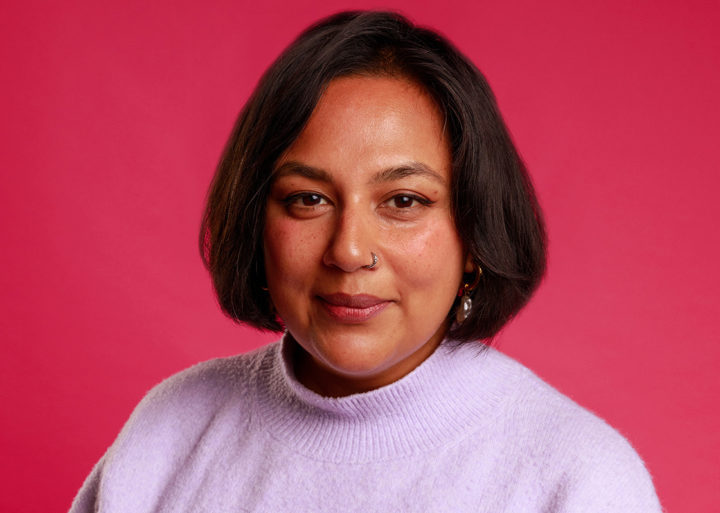
© Alia Romagnoli
Subhadra Das is a cultural historian who writes about science and society, particularly the legacies of scientific racism and eugenics. For nine years, Subhadra was Curator of the Science Collections at University College London where she was also Researcher in Critical Eugenics at the Sarah Parker Remond Centre for the Study of Racism and Racialisation.
A founder member of Museum Detox, in 2019 she was lead curator of the exhibition Displays of Power: A Natural History of Empire at the Grant Museum in London. Her first book (Un)Civilised: Ten Lies That Made the West was published in 2024, and considers if the West is as civilised as it claims to be.
Dr Linda Davies
Dr Linda Davies retired as Director of Research Projects at the Centre for Environmental Policy, Imperial College London in 2013 and remains as Honorary Research Fellow in Urban Ecology. Her research included the UK National Ecosystem Assessment’s valuation of nature, as well as designing and directing Open Air Laboratories, a citizen science programme involving over 1m people and fourteen partner organisations in biological recording. She is a former NHM Scientific Associate and Trustee of both the British Lichen Society and Environmental Protection UK (IES). She recently chaired the Education and Outreach committee of the British Mycological Society and is Secretary to the Westminster Safer Neighbourhood Board.
Professor Amy Dickman
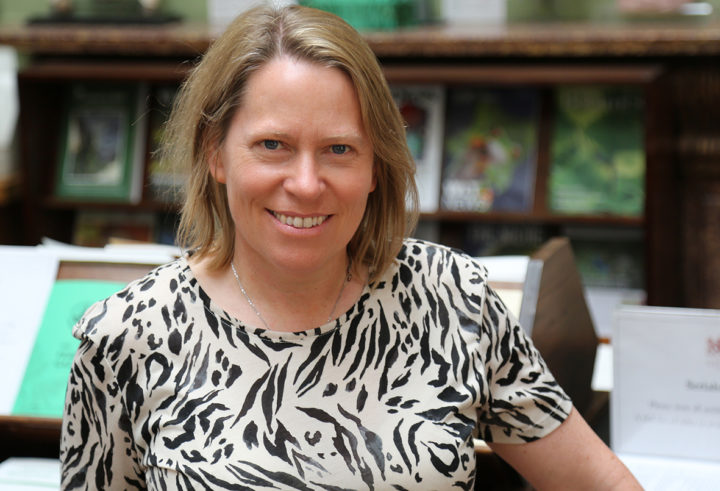
© The Linnean Society of London
Professor Amy Dickman’s field of expertise is human-wildlife conflict, with a particular focus on large carnivores. She is joint CEO of Lion Landscapes, a project which works to improve human-carnivore coexistence in Tanzania, Kenya and Zambia. Amy is also the Chair of the Board of the Arabian Leopard Fund, which aims to help facilitate the recovery of Arabian leopards across their range, and is a member of several IUCN groups, including the IUCN Cat Specialist Group and the IUCN Sustainable Use and Livelihoods Specialist Group.
She has been associated with the University of Oxford’s Wildlife Conservation Research Unit (WildCRU) since 1997, and in 2022 took over from Professor David Macdonald as WildCRU’s Director. WildCRU’s mission is to transform wildlife conservation through world-class research, training and implementation.
Professor Philip Gilmartin
Professor Philip Gilmartin graduated from Leeds University (Genetics), gained his PhD (Plant Molecular Biology) at Warwick University, and was a Post-Doc at Rockefeller University, New York, before returning to Leeds to establish his independent academic career. His research studies gene-regulation and development, most recently focused on plant pollination systems. He has held senior leadership roles in four universities: Director, Centre for Plant Science, and Pro-Dean Research Biological Sciences (Leeds); Principal, St Mary’s College (Durham); Pro-Vice Chancellor (PVC) Science and PVC International (UEA); PVC International and interim Dean of Science (Hull). He has held various external committee roles and trusteeships. He retired in 2024.
Dr José F. González-Maya
Dr José F. González-Maya has over 18 years' experience in ecology, natural history, and conservation biology, primarily with NGOs/academia, focusing on applying research to decision-making. He has worked to bridge the gap between science and policy, coordinating over 30 research projects for diverse organizations, and publishing over 150 scientific papers. He is passionate about promoting natural sciences and natural history and has (co-)founded three Latin American journals, including Mammalogy Notes. He has mentored over 30 students and contributed to real-world solutions, like Territorial Planning Plans for endangered species, the Jaguar Friendly initiative, and Colombia's Endangered Species Law. I've also authored numerous outreach materials and 15 books.
Peter Gregory
Peter Gregory's working career has been spent in education – school teaching across the South East of England before entering Higher Education to train teachers. In all these roles he has shared his personal interest and enthusiasm for the natural world to inspire learners. Peter’s own academic background is in visual art education and he has taught and supervised undergraduate, Masters and Doctoral students. Besides dendrology and ornithology, his fascination is herpetology (first joining the British Herpetological Society as a teenager). Having retired, he is active with a number of organisations: BHS, Wildwood Trust, Kent Reptile and Amphibian Group and a local toad patrol.
Andrea Hart
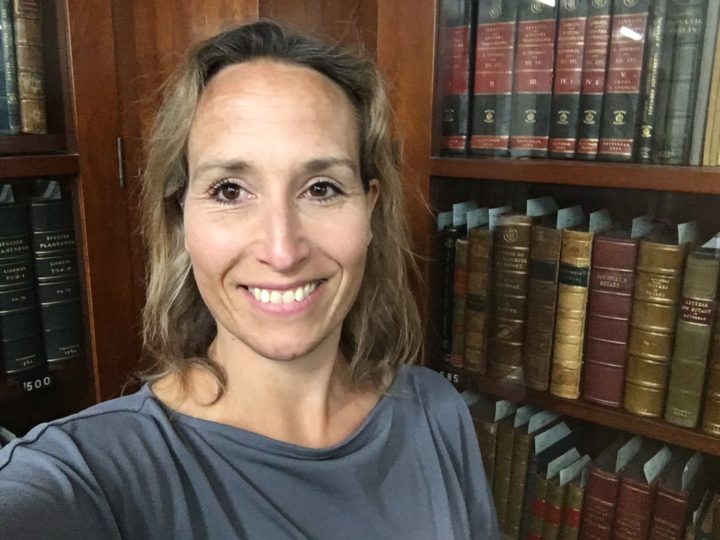
© Andrea Hart
Andrea Hart is the Library Special Collections Manager at the Natural History Museum, London. She has leadership responsibility for the Library's Special Collections and Archives Division and related support to internal and external Library and Archive users. She leads on the development, digitisation, collections care, security, promotion and access of the Library's Special collections which include the extensive rare book, manuscript and artwork collections. She plays an active role in public outreach including the development of the temporary exhibitions in the Museum’s Images of Nature Gallery and publication of books on the collections alongside seeking new ways to further develop and promote the collections through securing grants, sponsorship and provision of support to the NHM’s Development and Commercial activities. An expert advisor to Arts Council England, she represents the NHM Library as a Linnaeus Link Union Catalogue partner and is a long-time supporter of the Society having been a member of its Collections Committee since 2015, providing valuable counsel on issues such as external loans of the collections, acquisitions, disaster planning, and collection management.
Dr Isabel Larridon (Co-opted to Council)
Dr Isabel Larridon leads Accelerated Taxonomy department at the Royal Botanic Gardens, Kew. Her research focuses on the evolution, biodiversity and conservation of African and Madagascan plants with particular emphasis on the Cyperaceae or sedge family. Isabel is a Visiting Professor in the Department of Biology at Ghent University in Belgium, and supports the organisation of the MSc in Plant and Fungal Taxonomy, Diversity and Conservation organised by RBG Kew and Queen Mary University of London. She regularly publishes in specialist journals and leads research programmes on plant and fungal taxonomy in Madagascar, and on the Cyperaceae and Compositae families. She is also exploring the use of machine learning in taxonomy. She contributes to the community as a member of the IUCN-SSC Freshwater Plant Specialist Group and the West Africa Plant Red List Authority. She also carries out editorial duties for Kew Bulletin and Plant Ecology and Evolution.
Fiona McWilliams
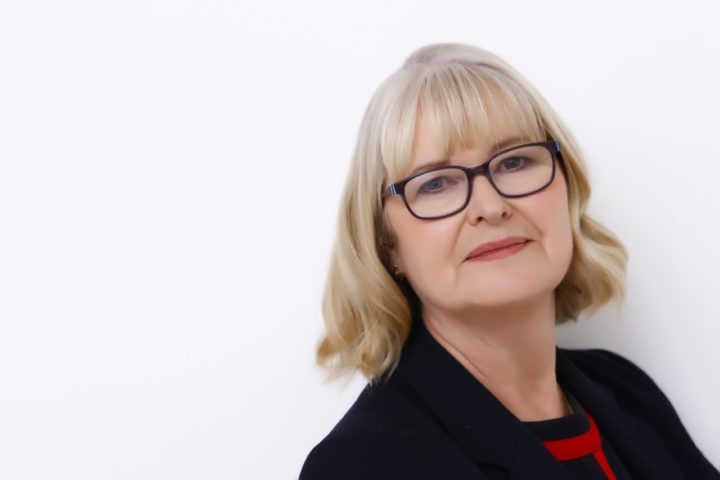
Fiona McWilliams moved into institutional fundraising and development in 2005, following a career in media public relations. From 2005–2007 at the Royal Botanic Gardens, Kew (RBG Kew), she raised funds for the Treetop Walkway and Marianne North Gallery. She was Director of External Relations and Development at SOAS from 2015–2015, winning awards for fundraising and marketing, and achieving the university’s largest ever gift at £20M. At the Natural History Museum, London (NHM) from 2015–2022 she led successful campaigns focusing on the NHM’s scientific work and mission to create advocates for the planet, raising funds for the dramatic reimagining of the Museum’s central gallery and £20M Urban Nature Project. She is currently Partner and Co-Director at fundraising consultancy Jukes McWilliams, with clients including RBG Kew, National Trust, Alabaré and Newnham College, Cambridge.
Dr Juliano Morimoto
Dr Juliano Morimoto is an interdisciplinary researcher with primary contributions in zoology. His primary work has advanced our understanding of how nutrition and ecology modulate life-histories, behaviour and evolution in insects. His approach combines natural history observations, laboratory experiments, theoretical and mathematical models to address these questions. Juliano is the first biologist to be awarded the Riemann Fellowship and serve as editor for several ecological journals. He is the EDI Lead within the University of Aberdeen’s School of Natural and Computer Sciences. He is a Senior Lecturer at the Institute of Mathematics at the University of Aberdeen and a Professor of Ecology at the Federal University of Paraná (Brazil).
Dr Howard P. Nelson (Co-opted to Council)
Dr Howard P. Nelson is a conservation biologist with a broad expertise base, ranging from on-the-ground interventions to influencing governments to effect change to benefit the natural world. His speciality includes birds and mammals of the Caribbean, where he has worked for over 25 years to survey species diversity and abundance and to model responses to climate change of the wildlife habitats in these fragile landscapes.
He has worked in the university sector in both the UK and Trinidad, for the government of Trinidad and Tobago and in the NGO sector with Fauna and Flora International. He currently serves as chair of the Darwin Plus Advisory Group of DEFRA, is a trustee of the Global Biodiversity Foundation, and is a member of the IPBES Data and Knowledge Task Force. He currently lectures on the MPhil in Conservation Leadership at the University of Cambridge’s Department of Geography and is a Fellow of Lucy Cavendish College Cambridge.
Professor Stuart West
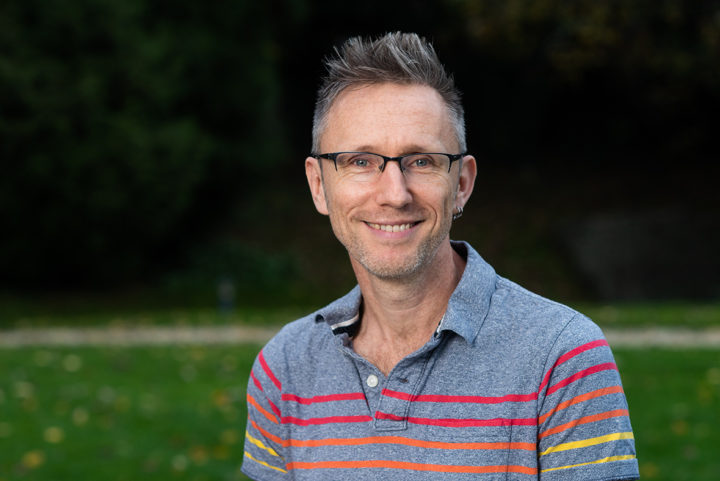
Professor Stuart West has been Professor of Evolutionary Biology at the University of Oxford since 2009. He is an evolutionary biologist interested in adaptation, evolution of social behaviours, and how these can influence evolutionary transitions. Alongside nearly 300 published works, he has published two books. Stuart currently serves on the editorial board for the Annual Review of Ecology, Evolution, and Systematics. He has won the Philip Leverhulme Prize for Zoology (2006), Scientific Medal of the Zoological Society of London (2006), and the rising star award from the late Duke of Edinburgh. He has experience editing a wide range of high-impact international journals, and extensive knowledge of disseminating scientific information across a range of forums, from traditional to digital media.
Dr Heather White
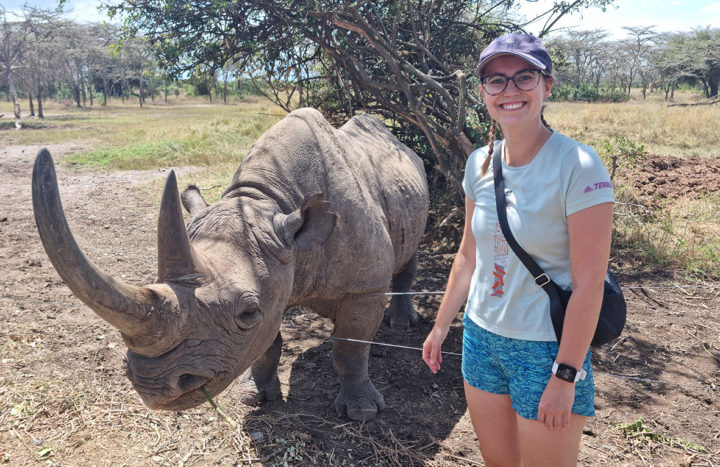
© Heather White
Dr Heather White earned her PhD in evolutionary developmental biology at the Natural History Museum, London, where she remains a Scientific Associate. Her outstanding thesis used novel approaches to quantify cranial suture development and skull morphology across Mammalia, earning her the Society’s 2024 John C. Marsden Medal.
Heather has worked as a Data Scientist at the Office for National Statistics analysing UK data on the UN’s climate and biodiversity Sustainable Development Goals. Currently, as a Senior Data Scientist at Natural England, she conducts species distribution modelling to inform UK conservation strategies.
Heather is passionate about scientific outreach, hosting stalls at festivals and talking science with school children; she is an advocate for women in STEM.
Transparency
The Society aims to be open and transparent in its elections. Full details of candidates for election to Council are published in the Anniversary Meeting document pack and any Fellow in good standing can vote. Council members are carefully briefed on their duties as Trustees of the Society (Registered Charity No. 220509).
The Chief Executive Officer is happy to answer any questions about the governance of the Society.
